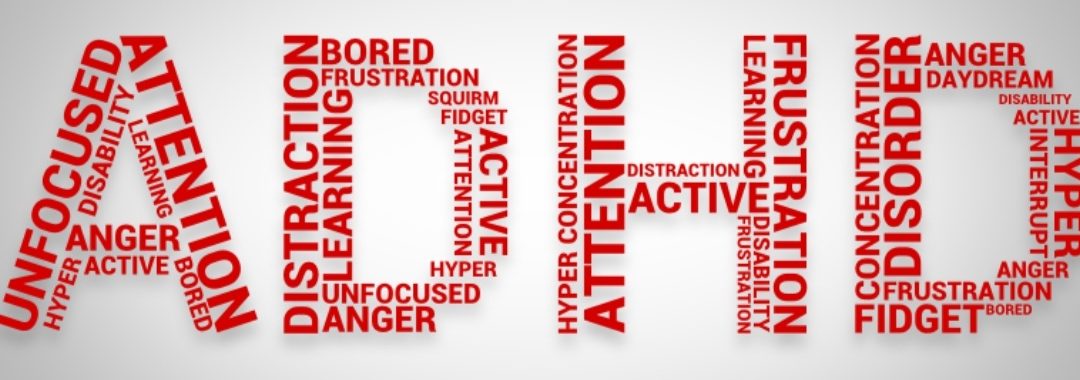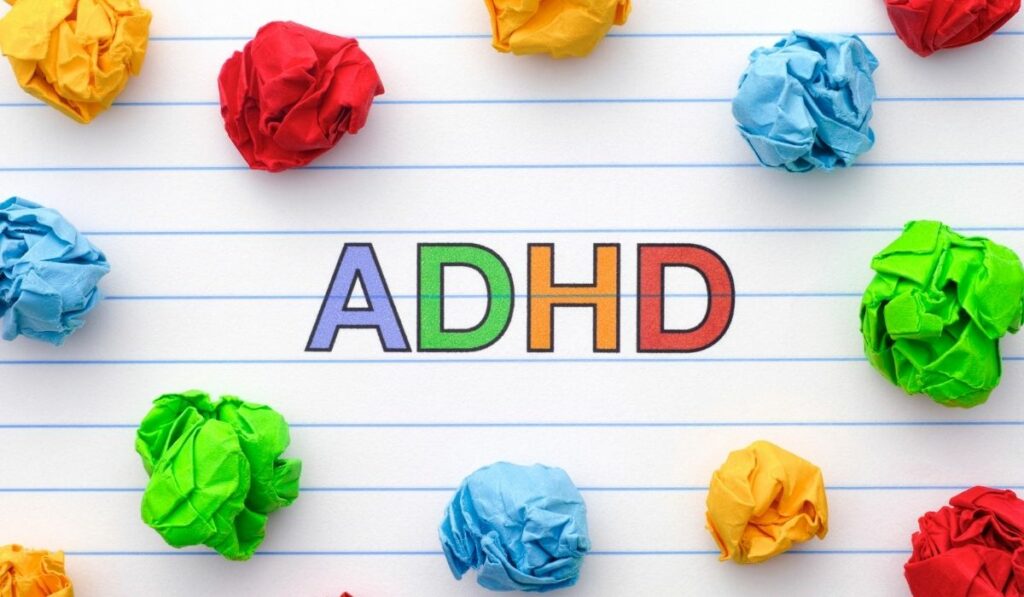A lot of parents have to deal with the struggle of parenting a child who has ADHD. It can be difficult for both parent and child, but there are ways to make it easier. There are a lot of things that make parenting a child with ADHD hard. There are also some ADHD parenting tips on how to handle these things.
Contents
What is ADHD?

ADHD stands for Attention Deficit Hyperactivity Disorder. A mental disorder is a sickness. It is when someone can’t pay attention or can’t control their actions. It makes it hard for them to do everyday things.
What Makes ADHD Parenting Difficult?
Having a child with ADHD can be difficult for many reasons. Some children have ADHD. They might act out without being diagnosed. But it is often a symptom of this disorder.
- Inability to focus or finish tasks (especially in quiet or calm settings)
- Frequent mood swings/mood changes
- Inappropriate behavior (like talking back or throwing tantrums)
- Anxiety and depression, due to feeling alone or misunderstood
Parenting Tips to Deal With ADHD
It can be hard to parent a child with ADHD because of many reasons.
For example, children with ADHD can be hyperactive and impulsive. This means they often have trouble in school and at home.
To deal with this, it is best to understand what your child needs. For example, if they need more exercise or an energy release, make sure you provide a safe place where they can do that. On the other hand, some children with ADHD may have issues focusing and paying attention in class. In those cases be patient and be sure to provide them with a calm and structured environment.
In addition, it may be helpful for you as the parent to speak with your child’s teacher or doctor about what they can do at school. They might have suggestions on how to help children who have ADHD stay focused during class time!
These are just some examples of ways that you can help your child at home and school. There are also many other ADHD parenting tips out there that you can look into!
Tip 1: Stay positive and healthy yourself

It can be hard to deal with the struggles of parenting a child who has ADHD. But in order to best help them, it is important that you stay positive and healthy yourself!
You might find it helpful to speak with your doctor about what they recommend for both you and your family when dealing with this disorder. They may also have some suggestions on how to stay positive and healthy.
In addition, you can find online communities where people who have been there before understand what you are going through. There is a lot of information on the internet about parenting a child with ADHD!
There are also many other ADHD parenting tips that may help both parent and child alike!
Tip 2: Establish structure and stick to it
It can be helpful for parents to establish a daily schedule and stick to it. It is best when you create this routine with your child so they understand what is going on every day.
In addition, try not to overschedule them or let other people distract from their responsibilities! You want them to have time during the day where they are able to focus on schoolwork and homework without distractions.
Make sure that there is a quiet place in your home where children who have ADHD can study independently if needed as well! This will help keep things calm while still offering an environment of success for your child’s learning activities.
It can be hard to keep the structure at home, but here are some ways you can help. It is important to find out what works best for you and your family, but this structure may help keep everyone happier!
Tip 3: Stay patient

It can be hard parenting a child with ADHD. They might have many successes in life, but they also face challenges on a daily basis that are difficult for them.
Parents of children with ADHD should try their best not to get frustrated when they act impulsively or misbehave sometimes. This disorder makes it difficult for people to control themselves at times because of how strong certain impulses can be! But if parents stay patient, these situations can teach us all more about ourselves and our own feelings/thoughts!
So remember to take deep breaths before reacting harshly to things your child does. They are learning and growing up, so try to stay calm when they make mistakes or misbehave!
It is also important for you as the parent to give them plenty of positive reinforcement throughout their day no matter what happens. Try not to pay too much attention to bad behaviors. But also focus on the successes that children with ADHD have in a given day. They need encouragement more than anything else. These are just some examples of ways it can help if parents remain patient while parenting a child who has ADHD. There are many parenting ideas that you can try. Find out what works best by trying different options until something sticks.
Tip 4: Encourage movement and sleep

Children who have ADHD often act more impulsively when they are tired or do not get enough sleep. So it is important for parents to encourage them to stay active and take plenty of breaks throughout the day!
In addition, make sure that your child gets at least eight hours of sleep each night. That will promote better behavior the next day. You will probably see an increase in productivity if you stick with this routine every single night before bedtime!
Being active and getting quality sleep can help children with ADHD. They can do better in their daily responsibilities. It might seem difficult but once everyone starts seeing improvement from these activities, things become so much more manageable.
If you want to learn how to be a good parent, you can try different things until you find something that works for your family.
Tip 5: Set clear expectations and rules

It is so important that parents establish clear expectations and rules for their children to follow.
For example, if you tell your child to go straight home after school, make sure you have some rules in place. If they don’t follow the rule, there should be some consequences. Your child needs structure in order to succeed and this will help them learn the importance of following through on promises. You can set up rewards and punishments. Rewards would be things like more time on the computer or TV when you do what your parents tell you to do. Punishments would be things like taking away screen time when someone breaks a rule. These examples can show kids with ADHD what to do when they are struggling. For example, you could use a chart in a homework session or when kids need to learn something.
People with ADHD need clear expectations and rules. This will help their children do better. Find out what works best by trying different options until something sticks!
Many children with ADHD have a hard time coping with their daily responsibilities. But it is easier if they are active and get quality rest. It might be difficult, but as you see improvements, things will become more manageable.
There are many different ADHD parenting tips. Try them until you find the one that works best for your family.
Tip 6: Help your child eat right
Many children with ADHD have a hard time with their diets. They might not pay attention to what they eat, so it is important for parents to make sure that they are eating properly throughout the day.
First of all, encourage your child to eat breakfast every single morning before school because this will help them stay focused and attentive in class! If you remind them to eat healthy food, they will be able to focus better.
In addition, try encouraging them towards healthier snacks between meals instead of junk food like candy bars or chips whenever possible. If you give your child these kinds of food, then their sugar intake will decrease. This is good because sugar is unhealthy.
Tip 7: Teach your child how to make friends

Having ADHD can make it difficult for you to connect with other children at school or in social events that take place outside of the home.
Encourage your child to do group activities where everyone is welcome. This will help them interact with others on a personal level at their own pace. This type of environment makes it easy for kids with ADHD to feel better about themselves. They will communicate better this way. You could join those groups from time to time so they have someone familiar there when they feel scared and want help. This will increase their chance of success!
Some people have ADHD. They feel sad, and they don’t know how to talk to other people. You can teach them how to talk with other people by doing group projects together.
Why Should A Parent Deal With ADHD?
ADHD is a medical condition that makes it hard for people to focus and control their behavior. Learning difficulties can make kids cannot learn at school, not get along with others, and cause problems at home.
But there’s good news: Children and teens with ADHD can get better! Kids may not be able to control what happens in their lives, but they can learn to control their behavior.
Kids with ADHD can do well in school and at home, but they need help. They can be successful if they get the right support, treatment, or medicine.
Parents play a very important role in helping children manage ADHD symptoms. They’re the ones who help their children get treatment, take care of daily routines and responsibilities, and provide encouragement.
There’s no doubt that parents can make a big difference for their kids. If you’re the parent of a child with ADHD, here are some reasons why it’s important to take an active role in his or her life:
Helps your child learn how to control his symptoms.
Lots of kids with ADHD get in trouble at home or school because they can’t control their behavior. Kids who have ADHD often get mad if people talk to them while they’re trying to think, lose their temper when others interrupt them, and have a hard time playing quietly by themselves. But if you give your child tools for dealing with his symptoms, he’ll be better able to manage them.
Helps your child’s self-esteem.
If you have ADHD, you might feel bad or embarrassed about things at home or school. By helping your children learn how to cope with their symptoms, you can help them gain a sense of control over their lives. Kids with ADHD need lots of encouragement to feel good about themselves, just like any other kids do.
Helps you communicate better with your child.
When parents are on the same page, it’s much easier for everyone. Getting along with your child is more likely if you can talk to him calmly and explain what he should do. The more you communicate with your child, the stronger your bond will be.
Helps focus the child’s attention on schoolwork and learning.
It can be hard to pay attention in class if ADHD is making it hard to concentrate. The less a child pays attention, the worse he does in school unless someone helps him learn how to focus.
Helps the child develop social skills.
Kids with Attention Deficit Hyperactivity Disorder have a harder time playing with friends. It is hard for them to pay attention, forget what others say, or play as well as other kids. But you can help your child learn how to be a good friend by teaching him skills that will make it easier for him to make and keep friends.
Helps you and your child develop a routine.
Having a routine makes life much easier for everyone. Once you establish one, follow through with it as often as possible – even when things get out of control. If your child knows what’s expected of him at different times of the day, like after school and before bedtime, it will be easier for him to cope with everyday activities.
Helps your child relax and fall asleep at night.
When children with ADHD have trouble calming down at the end of the day, they may have a hard time getting to sleep. If you can help your child learn how to relax or do some deep breathing exercises, he’ll more easily be able to fall asleep.
Helps your child learn how to be responsible.
It’s important for children to feel good about themselves and what they can do. If you help your child manage ADHD symptoms, he will have more success in life. And self-confidence can help him reach his full potential.
Helps you avoid power struggles with your child.
No one likes to have a fight when there is no reason for it or when everyone is tired and grouchy. A child who can control his behavior will be less likely to get into power struggles and more willing and able to do what needs to be done around the house.
Conclusion
We want to help you bring out your child’s best. If you’re reading this blog post, then that means that there is a good chance that your family might be dealing with the effects of ADHD and need some parenting tips for it. The unfortunate reality is that many children who suffer from ADHD are not diagnosed but instead live in isolation because their parents don’t know how to properly handle it or cannot afford counseling services or medication due to a lack of health insurance coverage. It can feel like all hope is lost when you think about what will happen to these kids if they go untreated, which is why we established our nonprofit organization dedicated solely to providing free mental healthcare for families living with ADHD-related challenges so they can get back on track together.
For more information, please contact MantraCare. ADHD is a neurodevelopmental disorder characterized by difficulty in paying attention, hyperactivity, and impulsivity. If you have any queries regarding Online ADHD Counseling experienced therapists at MantraCare can help: Book a trial ADHD therapy session


